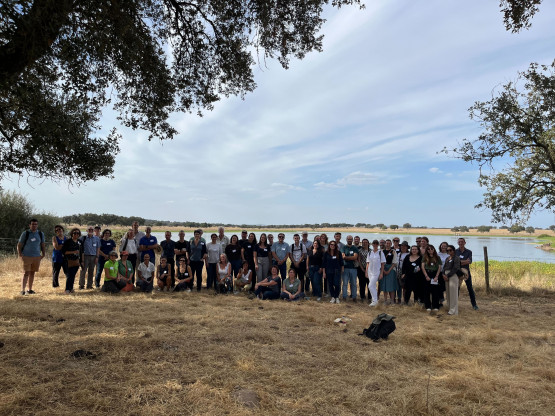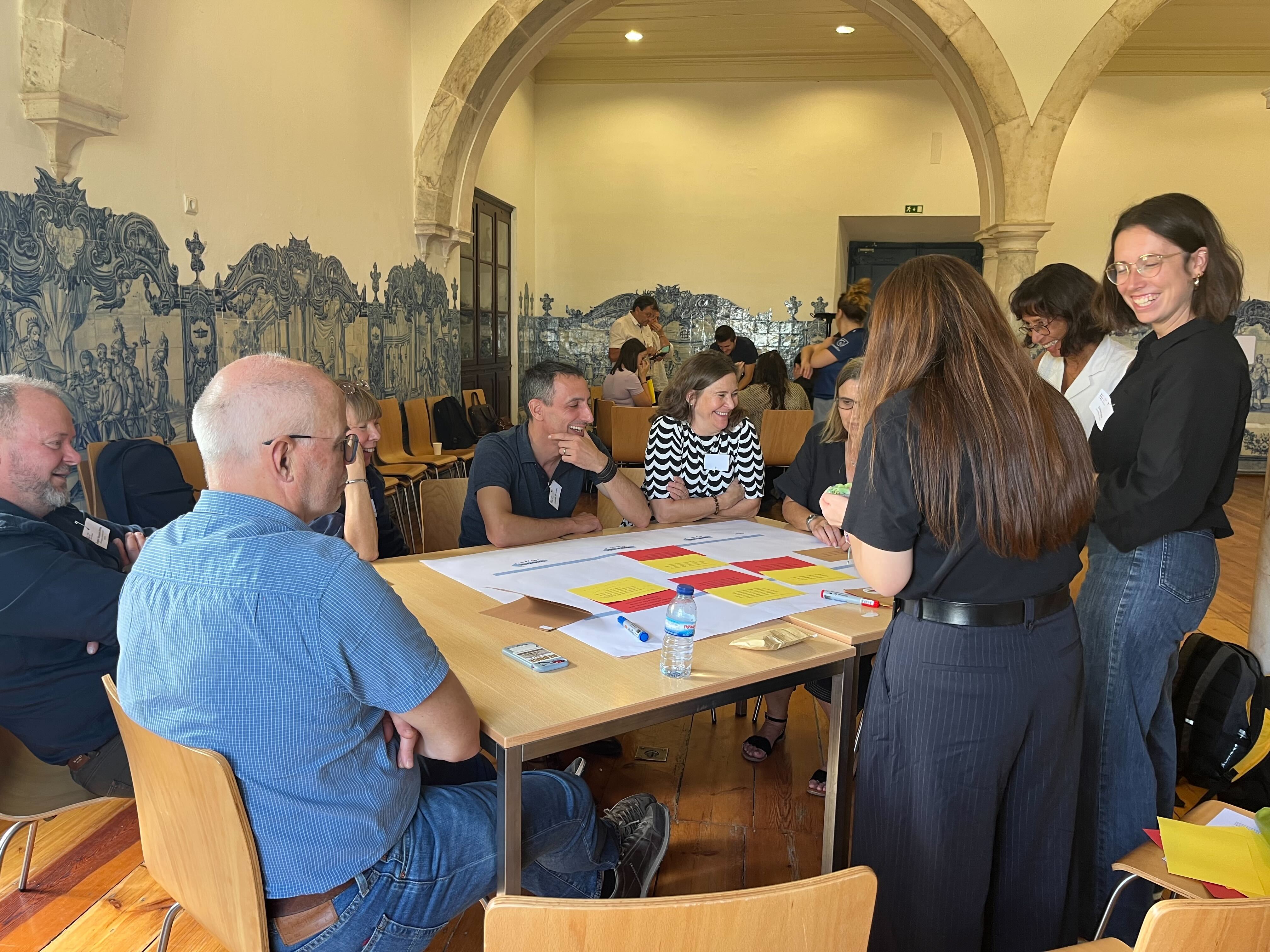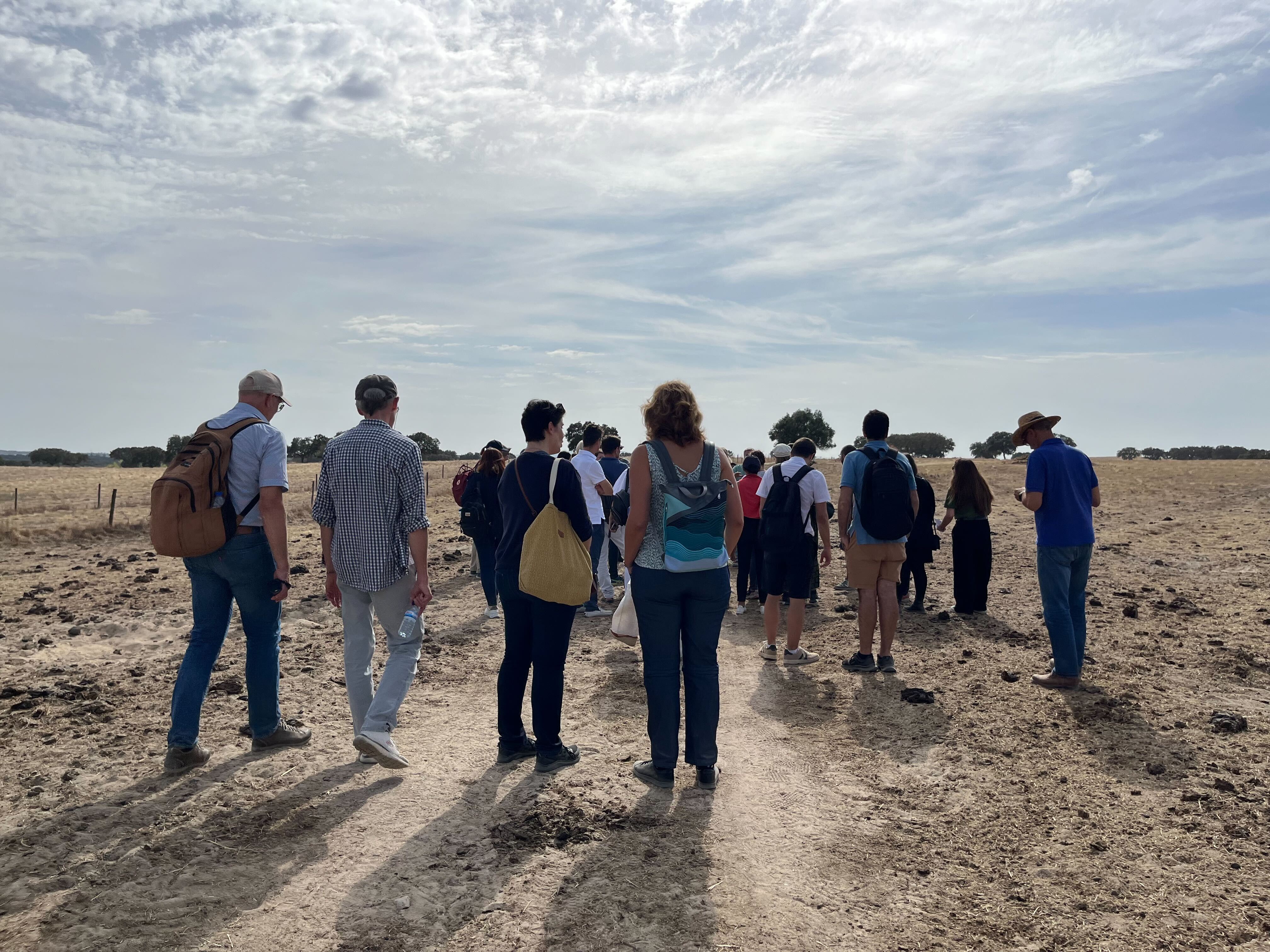
SOLO cross-fertilisation event in Évora, Portugal
From 14-17 October 2025, SOLO’s consortium met in person once again. Hosted at the University of Évora in Portugal, the project partners were joined by external stakeholders for a four-day meeting focused on collaboration, knowledge exchange, and action planning.
Similar to SOLO’s last stakeholder meeting, held in Bulgaria in November 2024, the first and last days of the event were exclusive to project partners, while the second and third days were open to stakeholders.
The consortium days consisted of a project meeting, allowing partners to better catch up on each other’s activities since their last in-person meeting in Lund in May 2025. All Work Packages presented their progress over the last months and mapped out their next steps.
SOLO coordinator Carlos Guerra (University of Coimbra) gave much-awaited updates regarding the organisation of the Soils for Europe conference in 2026. WP3 (NIOO-KNAW) provided training on the structure for identifying and recording the knowledge gaps, bottlenecks, and actions of the Think Tanks. Overall, the consortium days enabled partners to participate in dynamic discussions regarding the life and future of the project; from more practical things, such as planning the Soil Weeks in 2026 and discussing the Regional Nodes, to talking about their vision of SOLO’s work and legacy.
The stakeholder days were a mixture of discussions and interactive activities organised and led by WP2 (LEITAT). Participants joined different Think Tank tables, co-creating timelines for the mapped actions corresponding to those particular Think Tanks’ knowledge gaps and bottlenecks.
Stakeholders and partners alike participated in a study visit organised by the University of Évora. They were welcomed by Oliveira Soares in his livestock and cork farm in Alentejo, where he walked them around the land and shared with them his experience with regenerative soil practices.
The farm, which has been in Oliveira’s family for centuries and under his governance for 50 years now, is dedicated to practices prioritising soil health. One such example is that Soares has implemented a no-till policy on his land - a move he was initially warned against. Despite being told that no-tillage could lead to soil compaction from the cattle, eventually harming the farm, he was not dissuaded. What he found instead was quite the opposite: soil became healthier and more fertile. “Tillage in a climate like ours is dramatic for erosion”, he shared with his guests.
During the study visit, participants had many opportunities to walk through the land and discuss such approaches with Soares. Closing conversations raised questions of transferability, highlighting climate change as an important factor to consider - how can certain regenerative farming practices and approaches be transmitted to other farms, and climates?
 Photo by: Pensoft Publishers
Photo by: Pensoft Publishers
 Photo by: Pensoft Publishers
Photo by: Pensoft Publishers